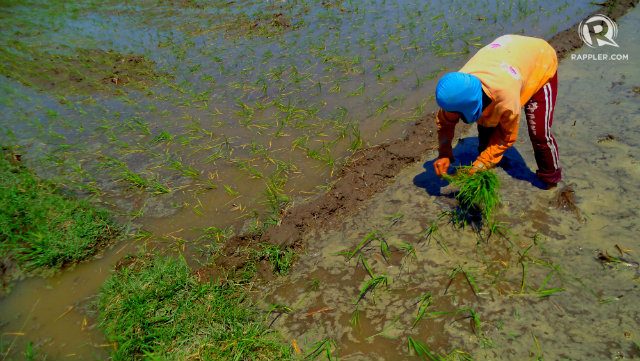SUMMARY
This is AI generated summarization, which may have errors. For context, always refer to the full article.

MANILA, Philippines – Is climate change linked to malnutrition?
Climate change severely threatens food security, which could then subject an additional 600 million people to malnutrition by 2080, a United Nations human rights expert said on Wednesday, November 4.
The warning comes a month before countries all over the world come together for the climate talks in Paris. In December, world leaders and advocates are expected to agree on a new climate agreement to reduce greenhouse gas emissions.
The increased frequency and intensity of extreme weather, rising temperatures and sea levels, floods and droughts greatly impact people’s right to food, according to Hilal Elver, the UN Special Rapporteur on the right to food.
Everyone has the right to food, as recognized in the Universal Declaration of Human Rights. This means individuals must be able to “feed themselves in dignity, either by producing their food or by purchasing it.”
“All these climate incidents will negatively impact on crops, livestock, fisheries, aquaculture and on people’s livelihoods,” Elver said in a press statement. She added that large-scale production is not the right solution to the world’s food demands.
Malnutrition is a global problem. In the Philippines, however, child malnutrition rates have remained virtually unchanged in the past 5 years, the latest National Nutrition Survey revealed.
Hunger and poor nutrition may start as early as pregnancy and infancy, leaving lasting impacts as the child grows older.
|
Prevalence of stunted children aged 0 to 5 years old |
|
| 2008 | 2013 |
| 32.3% | 30.3% |
Human rights
At the heart of the climate change issue is human rights.
“Those who have contributed the least to global warming are the ones set to suffer the most from its harmful effects,” Elver stressed. (READ: How climate change threatens food security)
“Urgent action is needed to respond to the challenges posed by climate change, but mitigation and adaptation policies should respect the right to food as well as other fundamental human rights,” Elver added.
There is a need for a “major shift” from industrial agriculture to transformative systems, Elver suggested. An example is agro-ecology that supports the local food movement; protects small holder farmers; respects human rights, food democracy and cultural traditions; maintains environmental sustainability; and facilitates a healthy diet.
In the Philippines, losses to climate change are most felt in the aftermath of typhoons, as manifested in damaged crops, infrastructure, and homes. Climate change, however, affects Filipinos even outside of disasters as seen in lower agricultural yields and food insecurity.
On the frontlines of feeding the country are farmers and fisher folks; they, too, are affected the most by climate change. Since 2006, they have been considered as the poorest basic sectors; with the impacts of climate change, their livelihoods are further compromised.
Ironically, the country’s food producers are also among the hungriest. – Rappler.com
Add a comment
How does this make you feel?
There are no comments yet. Add your comment to start the conversation.